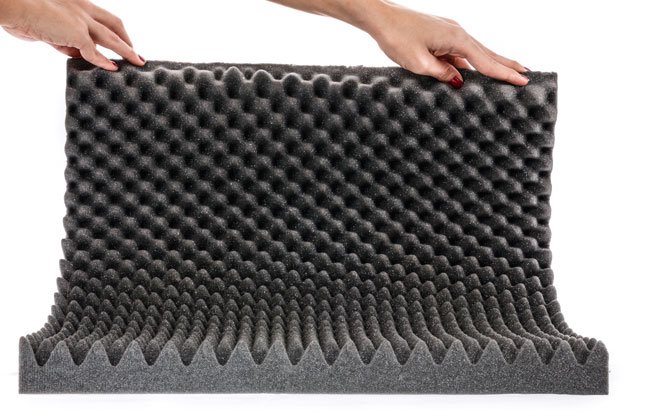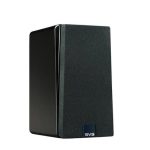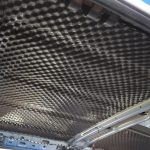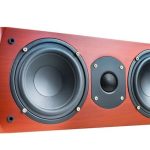Sound deadening materials are dense materials that soundproof a car to enhance its acoustics for a better listening experience. They work as sound absorbers, sound insulators, and sound dampeners. Their role as sound absorbers is to minimize reflections that amplify noise and cause echo. They work as sound insulators to block unwanted noise from getting into the car. They also work as sound dampeners by dissipating vibrations before they radiate as unwanted noise.
There’re several types of sound-deadening materials. They’re categorized as acoustic foams, sound insulators, and acoustic panels. They’re attached to car panels to reduce background noise and eliminate echoes that may bounce off the panels. They also reduce exterior noise while still ensuring the music noise from your car doesn’t affect other road users.
Regardless of the sound deadeners, you use in your car, they all come with several advantages and disadvantages. Here’re some of the advantages and disadvantages of installing sound-deadening material in your car.
Advantages of Installing Sound Deadeners in Your Car
Here’re some of the benefits you’ll enjoy by installing sound deadeners in your vehicle:
Assists in Reducing Road Noise

There’s a lot of road noise that gets into the interior of a car when driving. Road noise comes from tires, the car engine, and exhaust noise. Even if your car is not emitting a lot of road noise, other road users, especially those with loud exhausts can cause a lot of noise that will get into your car cabin. Road noise can drain the sound coming from your car’s music system. You’ll often find yourself turning the volume all the way up with the aim of listening to your car music amidst road noise. Road noise is also fatiguing.
Luckily, you can install sound-deadening material in your car to reduce road noise. Sound deadeners will insulate your car against road noise, thereby allowing for a quieter car cabin. Consequently, you’ll hear more details from your car sound system. You won’t have to turn the volume all the way up. Besides, you’ll feel less fatigued when driving without the stresses of road noise.
Reduces Rattling
As your car moves, the panels may vibrate. The vibrations can be worse when driving an old car or when driving along a rough road. Besides, the vibrations can be more intense when playing loud music with powerful car subwoofers. Rattling can be extremely annoying. It’ll destroy your car cabin acoustics and stereo imaging. Consequently, it’ll interfere with your listening experience.
Sound deadeners come in handy to reduce rattling. They make car panels denser, thereby preventing them from vibrating. They also prevent noise when panels touch each other. With reduced rattling, you’ll enjoy listening to your car music more clearly with enhanced stereo imaging.
Improves Car Acoustics
When mounting speakers in your car, you want them to sound perfect like they would in a properly designed speaker enclosure. A car cabin works as a speaker enclosure. However, a car cabin doesn’t have optimum acoustic properties. Most cars have gaping holes, especially in the doors and trunk. As a result, sound may escape through the gaping holes. Besides, the holes allow unwanted noise to get into the car. Installing sound-deadening material in your car seals gaping holes and reduces resonance that causes distortion. Consequently, they enhance the acoustic properties of a car, thereby allowing for an enhanced sound experience.
Makes Your Car Feel More Comfortable
Although most people install sound deadening material to improve the acoustic properties of a car cabin, they also come with thermal insulation properties. Sound deadeners are made of materials that also work as thermal insulators. They work by keeping heat within your car cabin during winter and keeping heat away from your car cabin during summer. Thus, you’ll find it more comfortable to drive a car that has sound deadeners.
Disadvantages of Installing Sound Deadeners in Your Car
Although sound deadeners are an important addition to a car, they come with some disadvantages such as:
They Increase the Weight of Your Car
Adding sound-deadening material means that your car will have more mass, thus an increase in its weight. Increasing the weight of your car, it’ll consume more fuel. This is likely to happen when you use extremely dense and heavy sound deadeners. Consequently, you’ll spend more money on fueling your car.
May Not Be Reusable
Sound deadening materials that are installed by gluing them onto the car panels or those that come in the form of foam sprays are hardly reusable. Once you install them in a vehicle, you may not be able to reuse them in another vehicle. You’ll have to buy new ones when changing cars.
Installing Sound Deadeners is Labor Intensive
Installing these materials demands a lot of time and labor. It might take several hours or some days to install them in your entire car. Moreover, it demands taking apart most of your car interior to install them.
Conclusion
Sound deadeners make your car cabin quieter. They reduce background noise such that you can even hear quieter details of your car music. You’ll also be able to make more audible phone calls in your car. Besides, the advantages of installing sound deadening material in your car outweigh the disadvantages. Thus, it’s worth installing sound deadeners in your car for an enhanced listening experience.
Michael Evanchuk is a San Francisco-based sound engineer with 20 years’ experience installing, troubleshooting, and repairing commercial, automotive, and household sound equipment. Evanchuk owns an auto stereo center, where he offers highly competitive car audio installation and repair services. He has written dozens of articles on different sound engineering topics, all of which have been published in leading journals, blogs, and websites.






